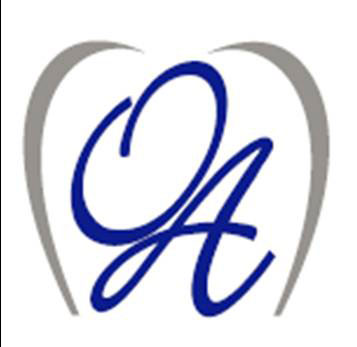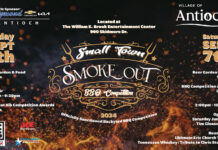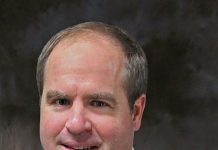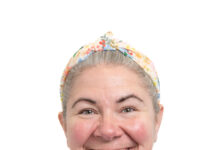Key people in the organization: 3 part-time staff, Board of Directors, 64 core weekly volunteers and 15 churches/organization volunteer groups.
Years in service: In our 20th year.
People served: During April 2020, we served 1,091 households. During April we averaged 48 seniors doing drive up and an average of 113 senior deliveries.
History of OAM
Open Arms Mission was originally established in 2000 by St Peter Social Justice Group. By 2004, as area demand grew, we became a community-based 501c3. Open Arms Mission is supported by the community. Our 64 weekly core volunteers are community members, on the 3 nights a week of food distribution, community churches and community groups do the packing and delivery to client vehicles and our Board is made up of community members. We are truly “neighbor helping neighbor” servicing Antioch and Lake Villa Townships by providing food and daily living necessities for neighbors who may be struggling with life situations that challenge their finances.
It might surprise you to know …
I’m not certain the average Antioch, Lake Villa or Lindenhurst resident understands that we have low income residential rental apartments and homes, including senior apartments. Low income can be someone living on a fixed income of as little as $535, $756 or $1,100 a month supporting one or maybe a family of six. Fixed income can be Social Security for seniors or Social Security Disability for someone who cannot work due to an accident or job injury. Imagine having worked most of your life in a minimum wage position (probably working more than one job at a time) and now retiring, you’re going to receive the minimum in benefits as well, or someone in a low paying job who gets injured on the job and is not able to go back to work. It takes an average of 18 months to get Social Security Disability payments and during that time you’re living on savings, help from family and/or friends, and are challenged by the bills adding up.
How has COVID-19 affected OAM?
COVID-19 has certainly brought on new logistical challenges. First, we needed to rethink how we distributed our food in an effort to keep clients and volunteers safe. For the past 19 years, as families would arrive they would receive a number and enter our building in groups of 10. Today, clients remain in their vehicle and we’re doing a drive up process. We pre-fill a box for everyone and for families of three or more an additional pre-filled bag. For families with school-age children another additional pre-filled bag is given out. After the first month, we’re now spending more time at their car catching up with any financial issues. For deliveries, our teams are now leaving boxes of food at the door rather than handing them to the client. A second way we have been affected is the reduction of our dedicated volunteers. We’re trying our best to have as few as we can in the building at a time. Third, we needed to cancel our weekly Community Dinner at the Antioch Senior Center. Also, since mid-March, we have added 67 new families. Finally, our main supplier of food is the Northern IL Food Bank and currently their sourcing has been challenge, therefore we need to purchase some of our food elsewhere. As we move through this most unusual time, more changes may still arise. While all of this brings on challenges, we’re also very blessed with the community reaching out to help in many ways.
What is in the most demand due to COVID-19?
Toilet paper, cleaning supplies, paper towels, laundry detergent and bar soap. Individuals and families on LINK (food stamps) do not use their cards for cleaning and personal hygiene items.
If a community member needs help, what are the first steps to get help?
When a local family needs assistance, a good first step is to come during our regular distribution hours on Tuesdays, Wednesdays or Thursdays between 4:30–6:30 to receive food and share with us your needs so we can determine how to help. If transportation is an issue, call 847-395-0309 so we can coordinate a food delivery or assistance.
If a community member needs help, what can they expect?
When you arrive during distribution hours, you will be greeted in the parking lot by a volunteer who will hand you a number. There will be one page of paperwork to fill out that includes the name of each household resident and the main contact person’s phone number and address. We do ask for a picture ID and a piece of mail or something other than an ID with your current address. Should you be homeless, we will pass on the address.
What is the back story behind “Socks for the Soul?”
In 2009, on behalf of OAM, the Close family initiated a campaign to provide warm socks for neighbors, sharing a little warmth and love during the cold months. Each month, Judy Close distributes to clients a pair or two of socks for each family member that visits the food pantry. Over the past 11 years, 78,000 socks have been collected, sorted and distributed. The socks are donated by schools, individuals, businesses and community groups.
What’s your favorite memory while serving in Special Programs?
When a family is on low income or no income, we want them to not feel as if they are different (especially the children). If we can provide a little extra at this particular time, the family can use their income for their bills. So, throughout the year, we sponsor several Special Programs. Three times a year, we distribute holiday meals that include food items that we consider a traditional meal. School supplies ensure students start the first day of school with some of their necessities. Adopt A Child ensures children have Christmas gifts when their parents need to focus on paying rent or utilities. A couple of years ago we initiated a free weekly Community Dinner, averaging about 62 individuals a week and open to anyone needing a hot meal. (This is catered by Piggly Wiggly, sponsored by community donations.)
How can individual community members and businesses help?
At this time, cash donations are best. Rather than having the community out in the stores shopping, we can purchase in bulk.
The greatest lesson you’ve learned?
I will speak for our volunteers and our donors, “Open Arms Mission offers each of us the opportunity to reach out to help a neighbor. It is an opportunity to grow in the knowledge that each individual has their own unique story to share, a life that includes financial challenges and leads to food insecurity. It is an opportunity to grow in love and respect for one another.”














